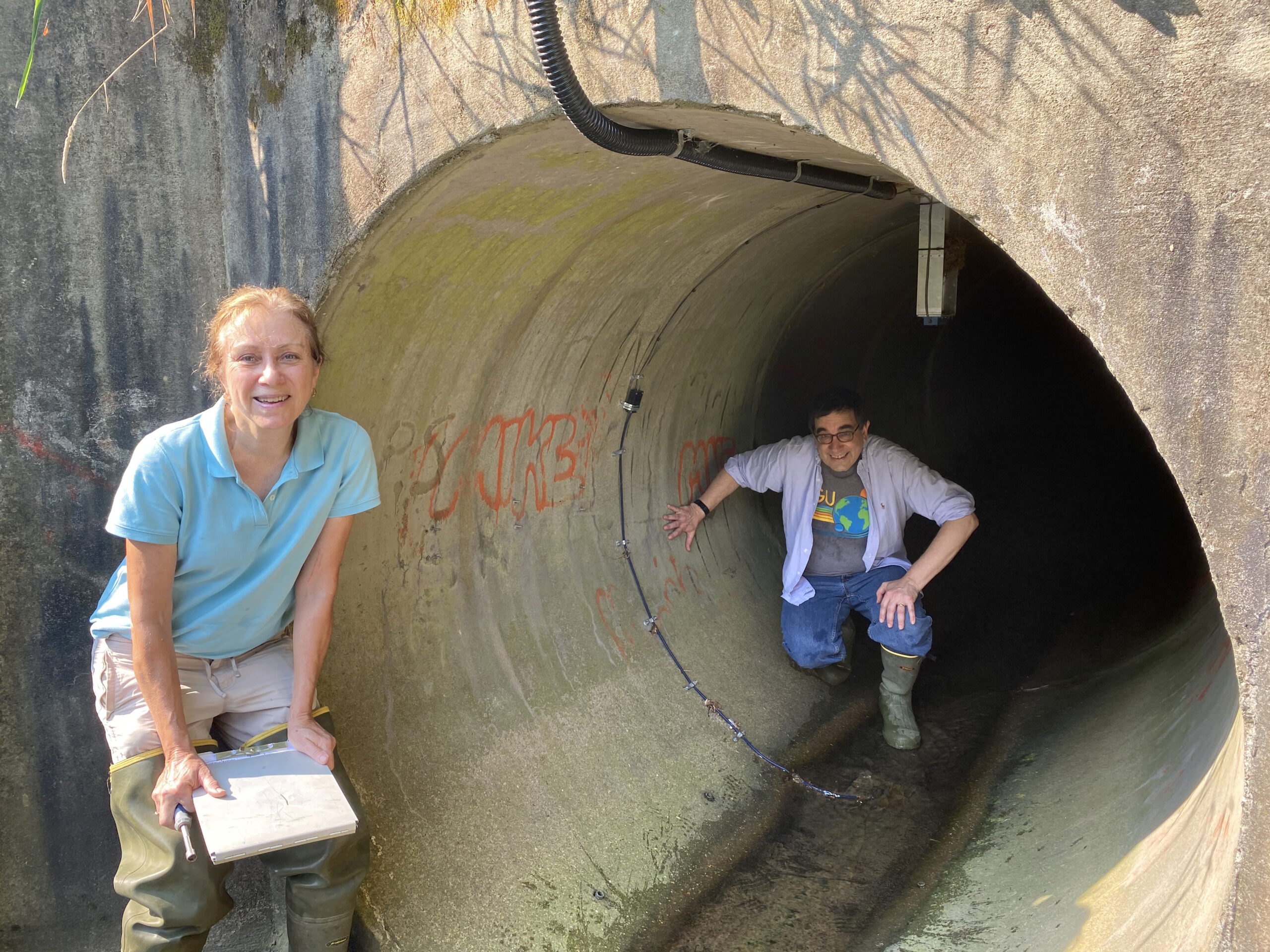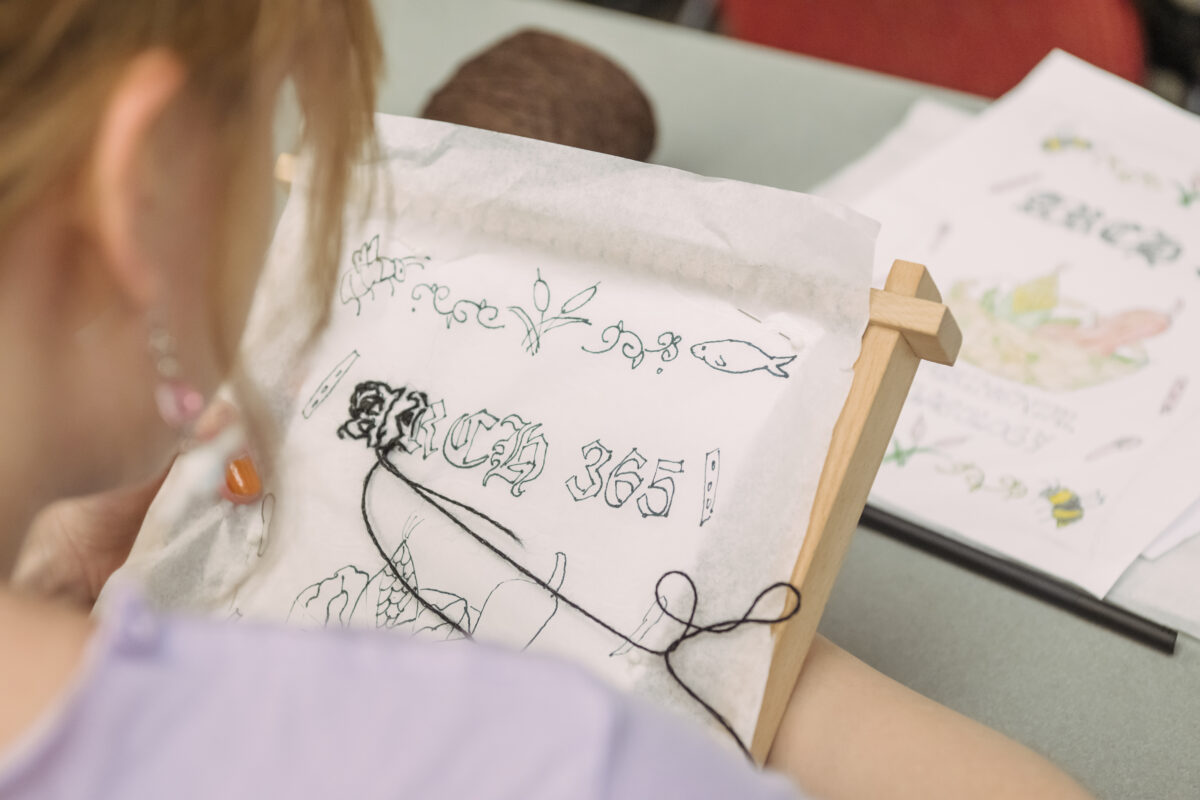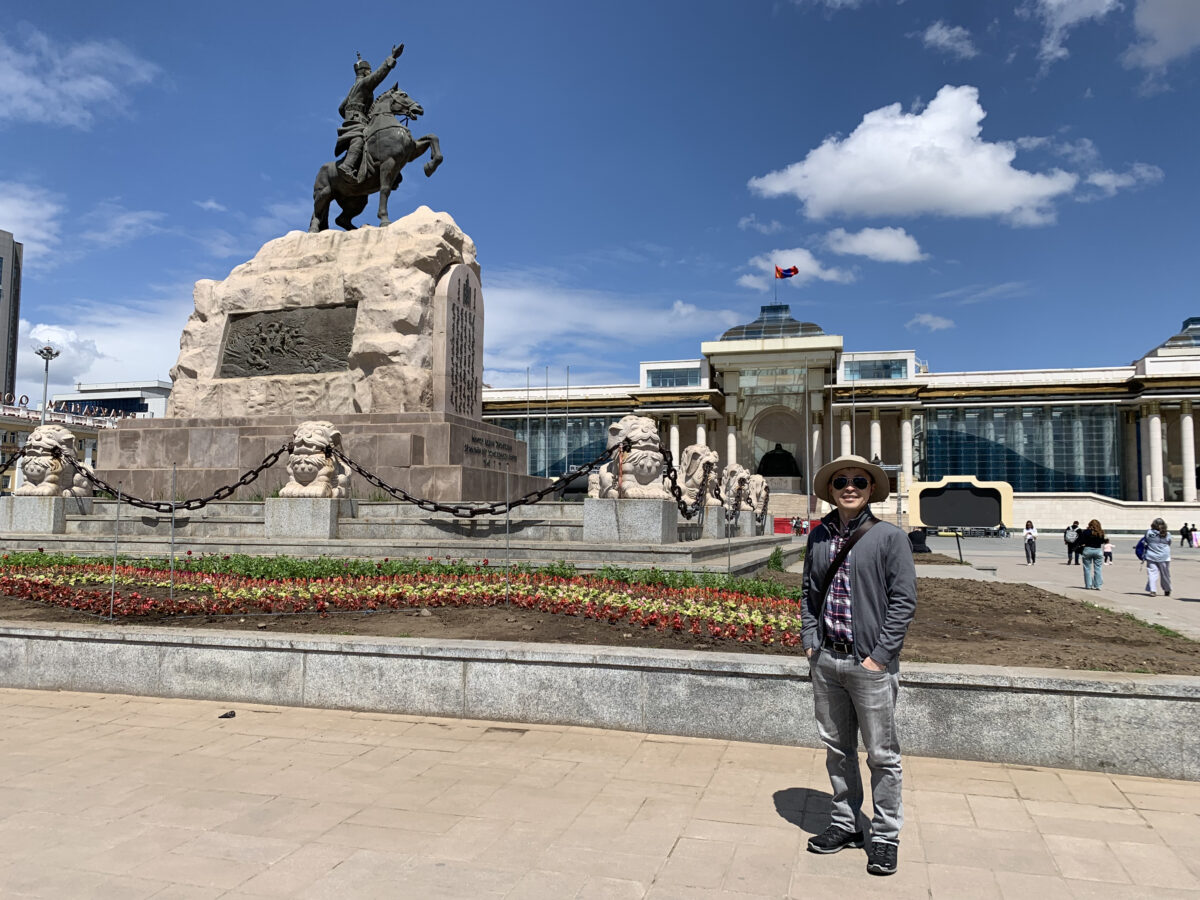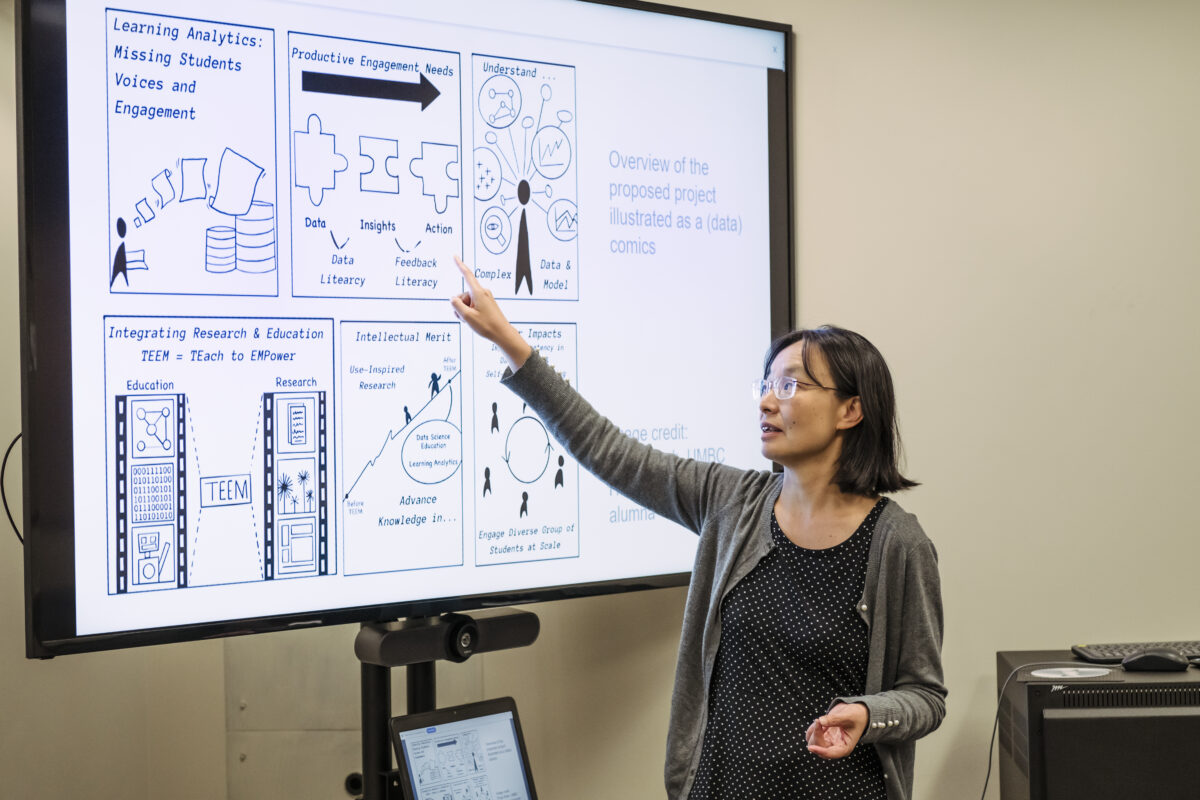American cities face environmental challenges that are exacerbated by climate change, from air and water quality issues to flooding and heat. Low-income neighborhoods and areas that were previously subject to racial redlining often experience these effects more intensely.
A new program supported by the U.S. Department of Energy (DoE) has funded Urban Integrated Field Laboratories in three American cities (including Baltimore) to generate resilience-enhancing solutions to urban climate challenges in collaboration with community organizations. The Baltimore-centered consortium, named the Baltimore Social-Environmental Collaborative (BSEC), will receive $24.5 million through the program. UMBC will receive $2.3 million of this larger grant.
Leading UMBC’s work on the project is Claire Welty, professor of chemical, biochemical, and environmental engineering and director of the Center for Urban Environmental Research and Education (CUERE). Johns Hopkins University leads the overall project, which also includes collaborators at the Pennsylvania State University, Morgan State University, the National Renewable Energy Laboratory, Drexel University, and the University of Virginia.
“This Baltimore Social-Environmental Collaborative is an important program during a critical time for our region, for our state, and for our planet,” says Karl V. Steiner, vice president for research at UMBC. “I am pleased that Baltimore was selected to serve as a representative metropolitan area for the climate challenges faced by many mid-sized industrial cities across the U.S.”
Listening to the community
Welty and UMBC colleagues such as Andrew Miller, professor of geography and environmental systems, bring decades of expertise in environmental monitoring to the project through their individual research and the Baltimore Ecosystem Study (BES). Originally funded as one of only two urban Long-Term Ecological Research (LTER) sites in the U.S., the BES has compiled massive datasets on the Baltimore region’s watershed, ecology, and sociological issues related to the environment for more than 20 years. The new BSEC will bring opportunities to expand this work in fresh directions.
“The exciting thing is leading from the needs of the community. To me, that’s what’s different about this,” Welty says. “What we want to try to do is partner with the communities to come up with solutions to these climate impact problems, and then what we’re bringing to the table are our tools to implement that.”
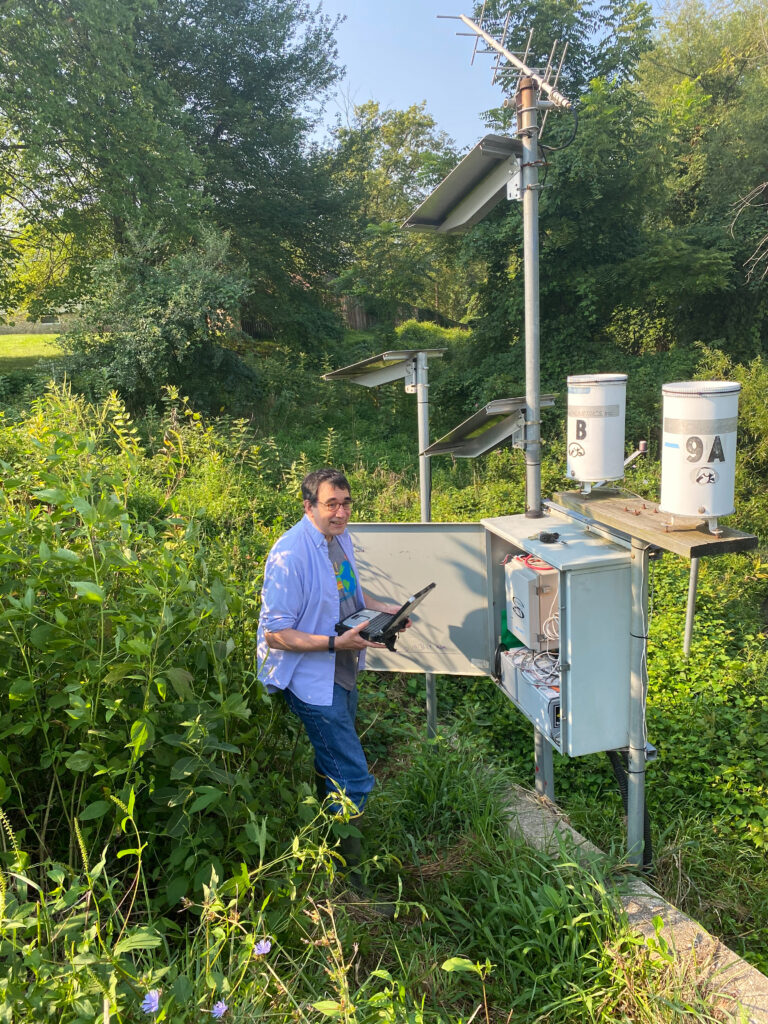
Welty and Miller bring expertise in understanding patterns of water quality, flood and groundwater modeling, and rainfall patterns and how they are changing. UMBC also brings experience interacting with local agencies, such as the Baltimore City Department of Public Works and Maryland Department of the Environment. Other institutions in the consortium bring complementary expertise, such as overall climate forecasting, an understanding of how climate impacts intersect with issues of public health, and experience building trust with community groups.
“Among us, we think we have tools that can be applied to solve these problems,” Welty says. “We’re not imposing our tools on community groups, though, or telling them what their problems are. They’re telling us, and we’re responding with support and resources.”
Adding nuance
Welty, Miller, and others have spent decades generating models and collecting on-the-ground (and sometimes underground) observations of water quality, flow, and more in the Baltimore region. They will continue that work with the BSEC, and with input from communities, prioritize certain issues or geographic areas.
The BSEC will also fund deployment of new sensors at existing Baltimore Ecosystem Study stream sampling stations in the Gwynns Falls watershed . These stations have a 22-year record of weekly water quality sampling, and the new sensors will add data on other parameters at 15-minute intervals, 24 hours a day, seven days a week. The data will be accessible in near- real time, on only about a one-hour delay.
The BES data is “the best urban water quality data set in the world. This is not meant to replace that, but to add nuance,” Welty says. For example, Baltimore streams have struggled with inundation from road salt in the winter. “You might miss the peak of a salt event with weekly sampling,” Welty says, but finer scale sampling would easily identify it in the data.
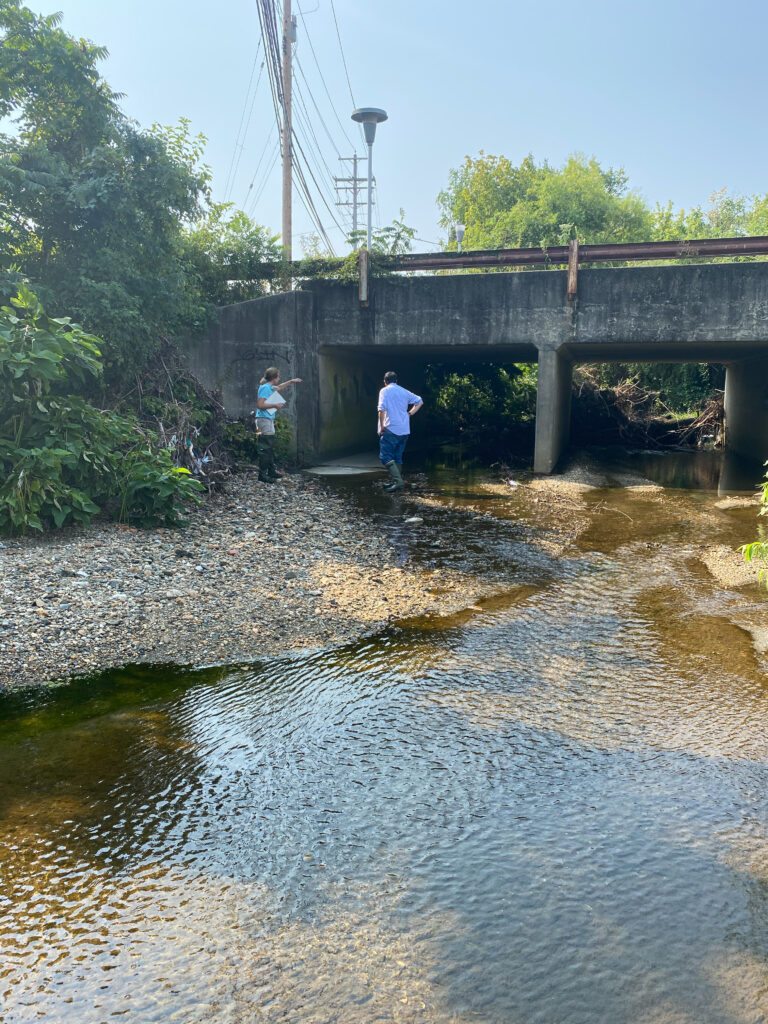
A giant puzzle to put together
The BSEC is a unique project that brings together wide-ranging expertise to address pressing urban needs. “The guiding objective of the BSEC process is to produce the urban climate science needed to inform community-guided, equitable pathways for climate action,” says Ben Zaitchik, professor of Earth and planetary sciences at Johns Hopkins and the overall project lead. “In doing so, we address a number of fundamental urban science questions from across natural science and social science disciplines.”
UMBC’s Steiner adds, “This partnership with John Hopkins University and other research institutions is building upon our strong and long-term record of environmental research and educational initiatives here at UMBC. It will both challenge and enable us to explore equitable climate solutions.”
While the exact priorities and concerns that local communities will bring to the forefront are unknown, the BSEC group plans to bring their tools to bear in a way that best serves the people of Baltimore. Building coalitions with researchers and community members, learning the communities’ needs, and then finding the best ways to address them “is like a giant puzzle to put together,” Welty says. “It’s going to be exciting to see how it all unfolds.”
Tags: CAHSS, cahssresearch, CBEE, CUERE, GES, rca-1, Research

